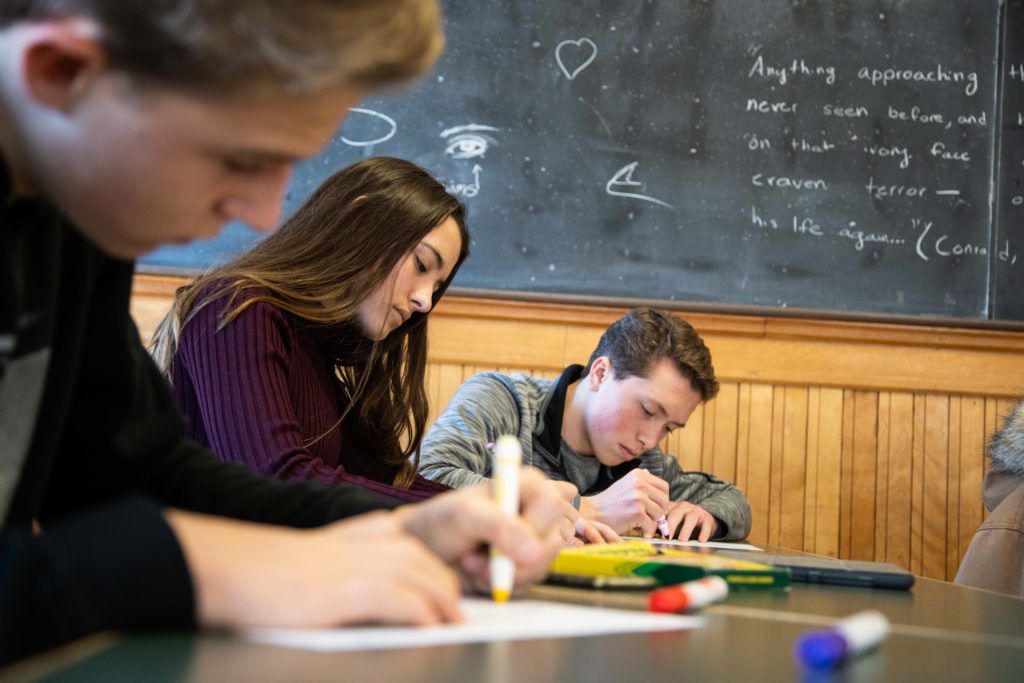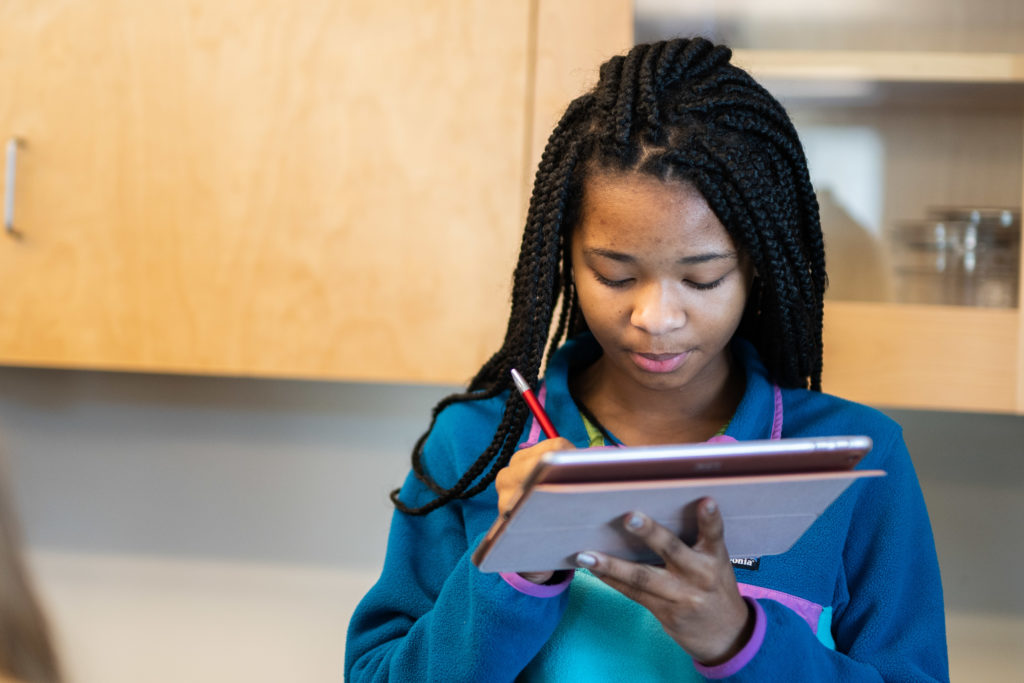For many schools, high schools and colleges, January is a month for assessment. It is often a mid-point in the year where students are faced with exam periods, test-taking, presentations, and often times, stress.
Faculty member Sara Tyson helped prepare our faculty for the mid-year assessment period with a presentation about neurodiversity, the way our brains work, and tools for success. The presentation was broken down into several different parts for us to understand.
Brain Science
Ms. Tyson began by explaining how our brain responds to stress between the prefrontal cortex, the hippocampus and the amygdala. In a testing environment, she suggested that we need to engage all three parts at the appropriate levels for success. A small amount of stress helps us to focus and perform well, while too much stress is not good.

Preparation
Faculty can help students create a comfortable learning environment, and guide students in strategies as we prepare for testing, as well as in the classroom when we arrive for our assessments.
- Pre-Test Strategies are helpful as we prepare for test-taking and presentations.
- Study: Do the practice exams and simulate the testing environment.
- Rest: Be sure to get plenty of sleep and not exhaust yourself before exams begin.
- Eat Well: Avoid foods that are high in sugar and caffeine, though small amounts can help to relieve stress and find comfort.
- Move: Take a break and stretch out, get your heart-rate up, and get some exercise.
- Engage in a Growth Mindset: Think positively and know that you’ve done all you can to prepare. Be eager to learn and absorb knowledge.
- Visualize: Think about your test day and what it will feel like, where you will sit, and how you will prepare.

The Big Day
Faculty can help students perform well on exams by setting them up for success in the classroom before assessments begin with calming and intention setting exercises. Here are a few suggestions:
- Listen to Music: Music can help you relax, shift gears, and find focus.
- Laugh: Laughing is a great way to decrease stress hormones and release endorphins that will make you feel better.
- Move or Stretch: Movement helps wake the body and release tension. Take a moment to loosen your muscles and stretch out before sitting down.
- Make Adjustments: Adjust your desk and seat so that you are comfortable. A brief moment to know that you’ve arranged your workspace to suit you can be an important step in finding your focus and comfort.
- Breathe: Helping students understand the benefits of a few mindful breaths, or a focused breathing exercise, is a wonderful tool. Faculty can lead the students through a brief exercise using the 7/11 breath practice; inhale to the count of 7, exhale to the count of 11, or simply encourage students to practice this on their own.

Understanding our body’s sympathetic and parasympathetic reactions to stress allows us to better prepare our classes, classrooms and individual students for successful assessment experiences. Whether a test, presentation, or even a group project, it’s important to assess student learning so that we can better evaluate our teaching and education models. These few simple strategies are helping to make Husky Nation productive and prepared for exam week.




